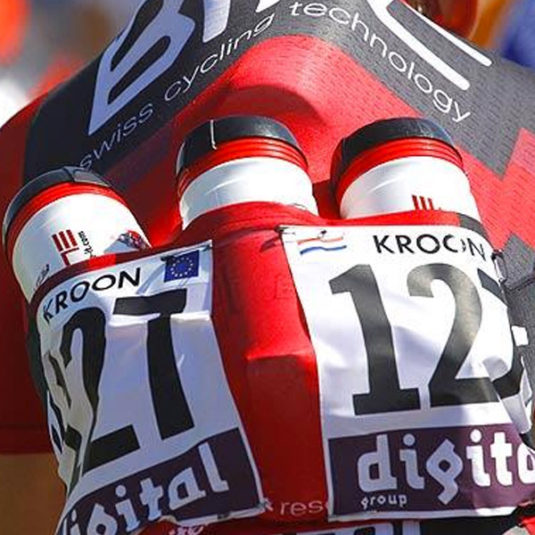
WATERCARRIERS
Try to explain a professional cycling team’s hierarchy to a non-cyclist, and the reaction will always be bemusement. There is nothing else in sport quite like the relationship between domestique and star. It was Geoffrey Nicholson who best summed up the great paradox, that in cycling the stars need the watercarriers, but the bottle-fetchers don’t get the same money or status. “In any team game,” wrote Nicholson, “sacrifices have to be made and the attackers can get more than the defenders. But it’s an odd team game in which those who score the goals get the major prizes.”
The system goes back a long way, but it only became truly sophisticated after the second world war, as improved road surfaces and bicycles that were less likely to break meant that cycling became gradually less attritional than in the “heroic era” prior to the second world war. Looking into the story of Fausto Coppi, I was struck by the organisation that built up around the campionissimo: gregari who were allotted the job of pulling up the foothills of the mountains, gregari whose job it was to push the great man, and others who had to go out and do his shopping or go round and pay off the other teams if necessary.
Most striking of all was the story of Sandrino Carrea, who simply didn’t understand when I asked whether he ever considered winning off his own bat. Carrea it was who wept when he just happened to take the yellow jersey in the 1952 Tour by getting in a lucky break. They weren’t tears of joy, but of paranoia: Fausto might not be happy, and he might lose his job.
What’s surprising about the gregario/campione system is how subtle the variants are. Since the days of Carrea, there have been riders who perform above their level when they don’t have to do it for themselves. It’s easier on the mind, Sean Yates used to say, to work for someone else who has to take the responsibility, than having other guys working for you and then having to take the rap if you don’t win. And for some – indeed many of us in life – doing a job well is the equivalent of winning. “Riding in the wind,” said Robert Millar of Yates, “was his job satisfaction.”
I remember watching a stange finish in the 1992 Tour at Saint Etienne where Laurent Jalabert had a chance of taking the green jersey. The ONCE team’s job was to make the pace on the final climb so high, that Jalabert’s only rival, Johan Museeuw, would crack and lose the points. The sight of Neil Stephens forcing the pace, again and again, faster and faster, harder and harder, had to be believed. Stephens could only have ridden so hard in the service of another, never in his own interests. It’s the mental stimulus of having a specific job to do: another rider told me of a stage race where he was grovelling, was told to carry bottles the next day, and ended up going better than his own team leader, simply because he wanted to work his best.
Try to explain the system of domestique de luxe, and this is where your outsider becomes truly baffled. How can you be a winner, and then say, ‘no, I’ll be a foil for someone who is only a little better than me’. Don’t all sportsmen want to win? The answer is simple: cycling is a professional sport. Some do it to win, others to earn a crust. As Yates and Carrea both told me, a good domestique earns a decent living, whether it was in the 1950s or the 1990s. They don’t get the biggest bucks, but it’s guaranteed income. Like builders, Yates told me: there are so many cowboys out there that people want to stick with the good ones. Hence the premium for a Stephens, a Yates, or a Michael Barry.
Some see cycling’s structure as a curse, with the efficiency of team racing leading to a two-wheeled equivalent of catenaccio, which shuts down major races. Fewer breaks, less excitement. There’s another way of looking at it, which is that it brings a level of sophistication into relationships within a team that is way beyond formalised team sports such as rugby, cricket or soccer. The rewards may not be equitable for the stars and the watercarriers, but there are infinite subtleties to be found in an individual sport run on a team basis.
This column first appeared in Rouleur magazine. For more information visit www.rouleur.cc

